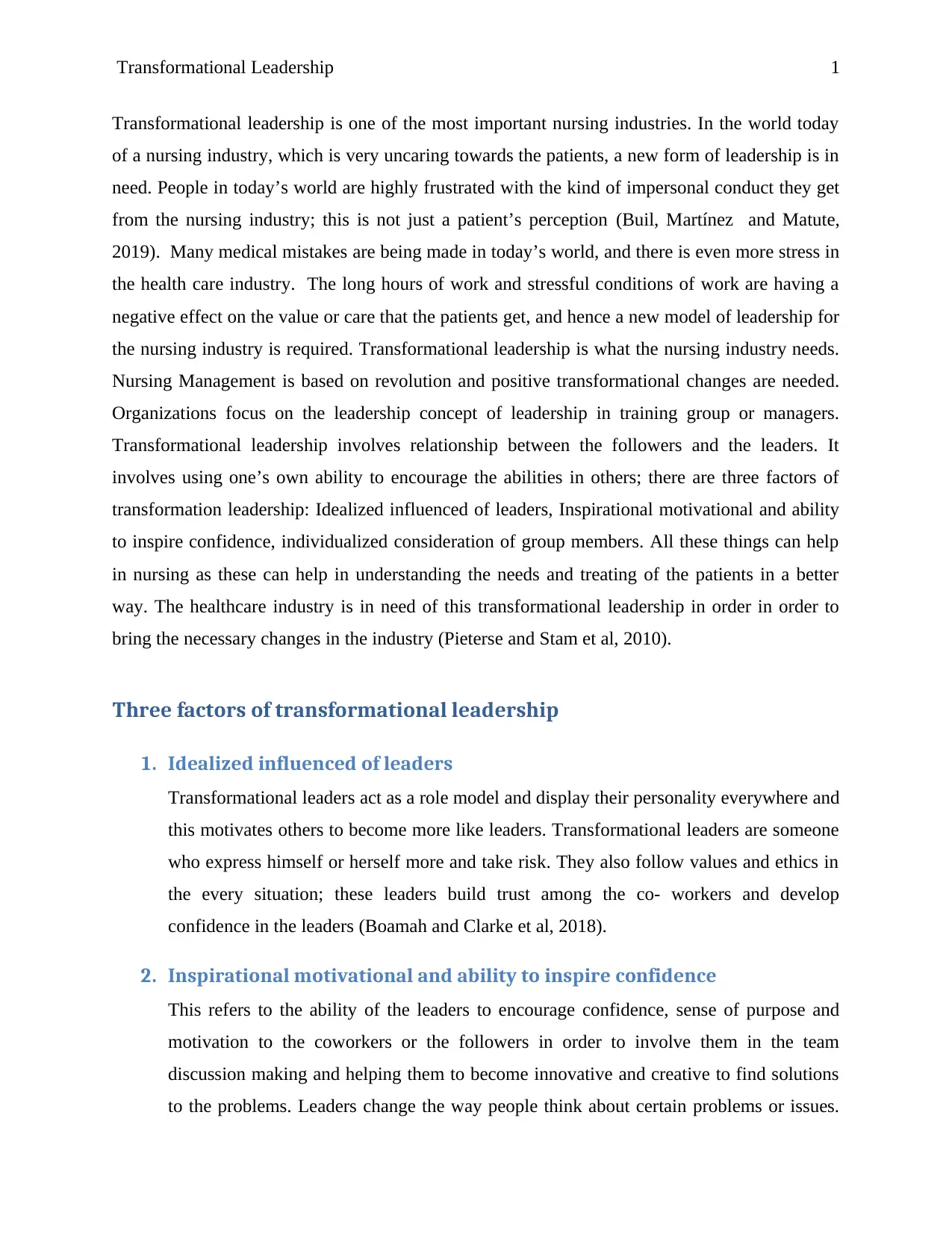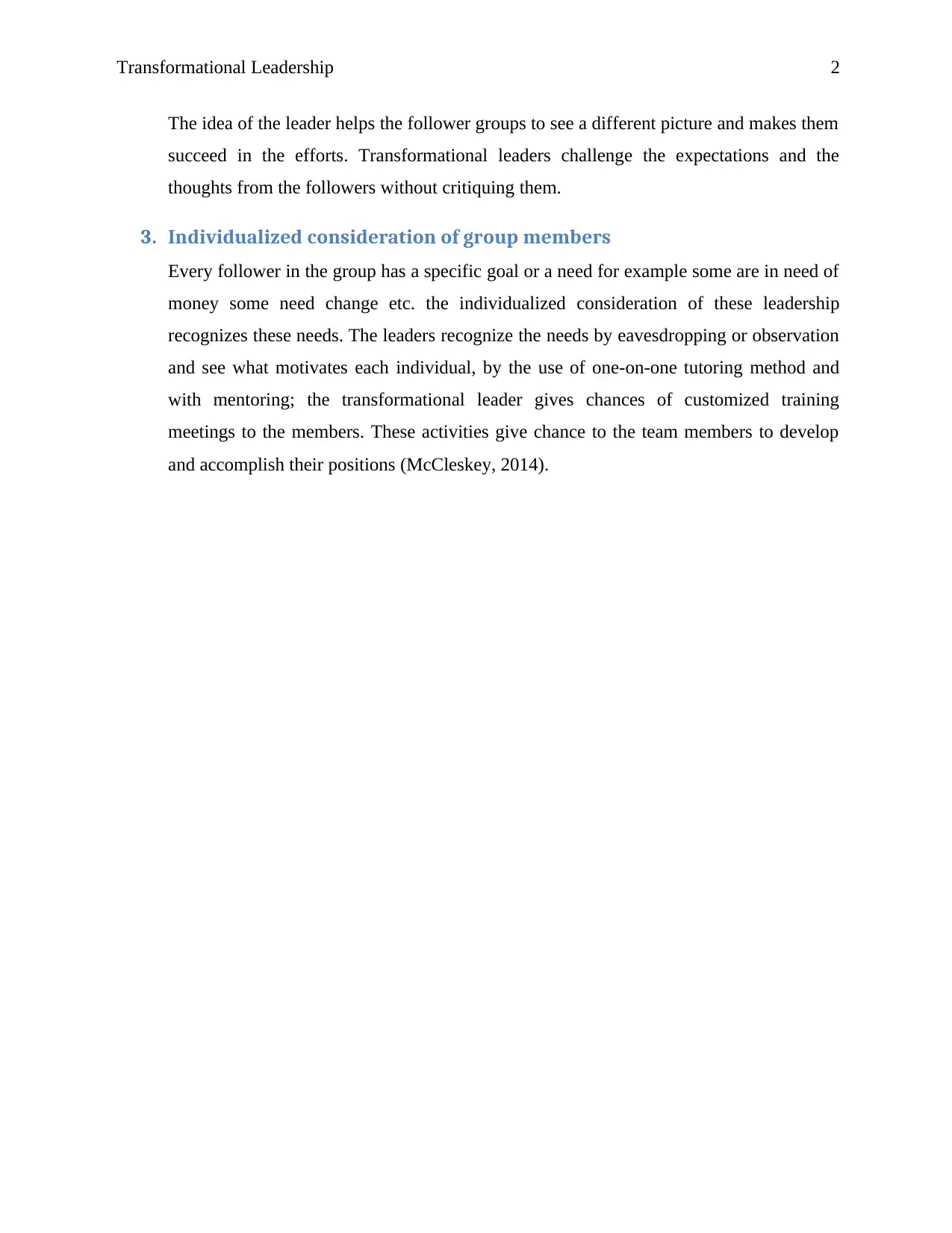Transformational Leadership in Nursing: A Comprehensive Overview
VerifiedAdded on 2023/01/23
|4
|755
|96
Essay
AI Summary
This essay delves into the concept of transformational leadership, particularly within the nursing industry. It highlights the need for a new leadership model due to increasing patient dissatisfaction and medical errors. The essay defines transformational leadership as a method that emphasizes relationships between leaders and followers, encouraging individual abilities and fostering a positive work environment. It outlines three key factors of transformational leadership: idealized influence, inspirational motivation, and individualized consideration. These factors are explained in detail, demonstrating how leaders act as role models, inspire confidence, and address individual needs to improve patient care and bring necessary changes in the healthcare industry. The essay references relevant literature and underscores the importance of transformational leadership in creating a more effective and patient-focused healthcare system, emphasizing its role in fostering innovation, enhancing job satisfaction, and improving overall patient outcomes. The assignment is a response to the brief that highlights the importance of transformational leadership in nursing, how it is connected to self-awareness, time management, and critical thinking, and how it improves health equity and technological cost.
1 out of 4










![[object Object]](/_next/static/media/star-bottom.7253800d.svg)